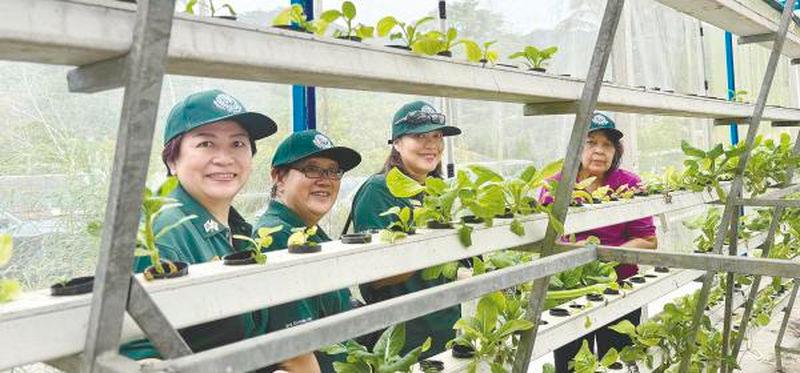PETALING JAYA: Soroptimist International Region of Malaysia (Sirom) recently conducted a community initiative called “The Sustainable Food Security Project” in Bentong, Pahang as a comprehensive approach to address the issue in Malaysia.
Its president Soon Lay Ean said the programme focused on feeding the hungry and revolutionising the entire food system, encompassing production, distribution, consumption and waste management.
“The event also gathered Malaysian soroptimists from all the other states to collectively address one of the world’s most pressing challenges, which is food security.”
Soon said Sirom is a dynamic global volunteer movement striving to transform the lives of women and girls with around 62,000 members in 123 countries, who advocate education, empowerment and opportunities for women and girls.
“During the event, participants engaged in discussions and activities aimed at exploring solutions to enhance food security, such as promoting sustainable agricultural practices tailored for the indigenous community.
“Additionally, the project has already trained 10 Orang Asli families in vegetable cultivation and aquaponic farming, providing them with practical skills to improve food self-sufficiency and sustainability within their communities,” she said, adding that Sirom’s holistic strategy aims to empower participants with a variety of agricultural skills, boosting their ability to sustain livelihoods and produce food sustainably.
She said by equipping participants with a diverse skill set, the initiative aims to improve their immediate earning potential while fostering long-term resilience within their communities.
“Those selected for training were individuals facing challenges in securing permanent employment, and some of the girls were specifically trained in (produce) and chicken farming.
“The initiative is designed not only to bolster food security by increasing production but also to ensure the food produced is nutritious, environmentally sustainable and promotes social justice by empowering marginalised communities.”
Soon said the approach addresses sustainability by promoting practices that minimise environmental impact, enhance efficiency in food production and distribution, and promote equity by ensuring fair access to resources and opportunities throughout the food supply chain.
“These families are now earning income by selling their cultivated crops and farming products. The Tilapia fish harvested from the aquaponic systems are not only consumed locally but also sold to restaurants, thereby enhancing the socioeconomic status of these indigenous women.”
Soon said a consistent supply of food must be ensured through domestic production, both for local consumption and distribution to the population, adding that people must have the economic means to access this food, which involves having adequate income or resources to purchase or otherwise obtain nutritious food.
She also said it is important to secure a reliable food supply through domestic production to meet local consumption needs and distribution across the population.
“Focusing on production and economic access aims to establish a sustainable and fair food system that enhances the health and nutrition of everyone.
“This would ensure everyone has access to nutritious, safe and sufficient food while preserving our planet’s biodiversity as it perfectly aligns with the United Nations Sustainable Development Goals, particularly Zero Hunger, Good Health and Well-being and Responsible Consumption and Production.”









